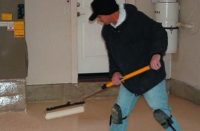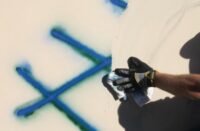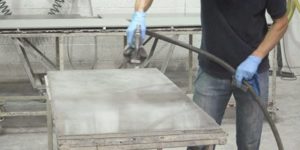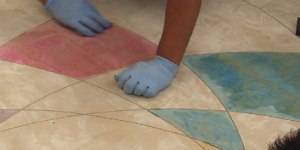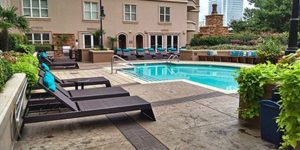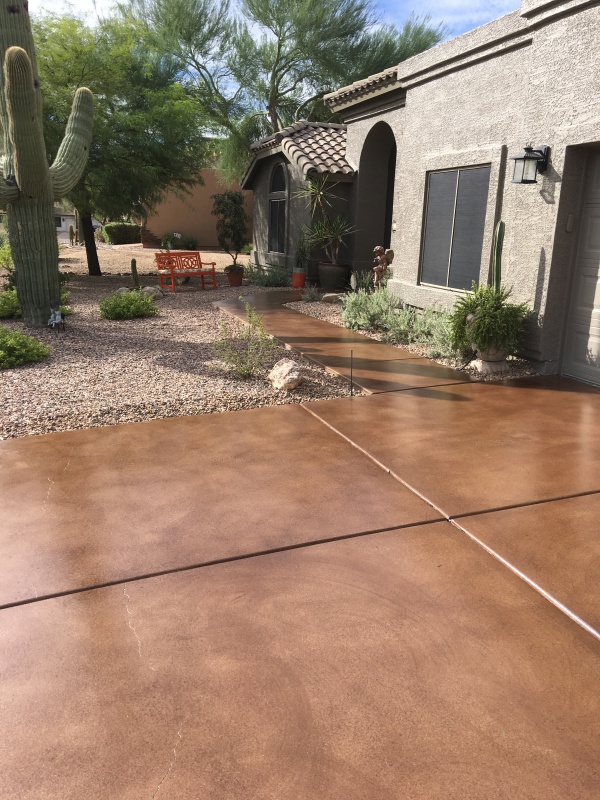 Contractors have relied on acrylic sealers and acrylic urethanes for decades to protect concrete flooring systems, and for good reason. In the right conditions, these sealers offer optimal durability, stain resistance and a desirable “wet look” finish. However, they have their limitations too and aren’t always the ideal option for high-traffic areas and environments with extreme hazards. There are a couple of challenges for contractors. When is it appropriate to stick with this tried-and-true material? Also, when should you opt for a higher-performance water-repellant sealer?
Contractors have relied on acrylic sealers and acrylic urethanes for decades to protect concrete flooring systems, and for good reason. In the right conditions, these sealers offer optimal durability, stain resistance and a desirable “wet look” finish. However, they have their limitations too and aren’t always the ideal option for high-traffic areas and environments with extreme hazards. There are a couple of challenges for contractors. When is it appropriate to stick with this tried-and-true material? Also, when should you opt for a higher-performance water-repellant sealer?
Retailers, restaurants, shopping centers and entertainment venues can lose significant revenue if their facilities or walkways need to be shut down and revamped. While every flooring system is subject to wear and tear, and repairs are ultimately inevitable, choosing the right sealer from the onset can help maintain the integrity of a flooring system for years to come.
Areas with significant foot or equipment traffic may need a sealer that’s a step above your typical acrylic sealer. In this case, Super-Krete Products’ SK-P250 may be the perfect fit. This two-component, low-viscosity, water-repellant acrylic urethane was formulated with durability and versatility in mind.
- As a primer, SK-P250 has a superior adhesion promoter, allowing it to adhere to properly prepared cementitious and select masonry surfaces. Unlike other polyurethanes, SK-P250 bonds tenaciously to cementitious and select masonry substrates.
- As a finished water-repellant sealer, this material is tough, stain resistant, easy to clean and UV stable. Compared to other acrylic sealers, it offers substantial improvements in initial toughness, gloss retention and long-term performance.
Standout features include:
- Works flawlessly as a sealer over a variety of color stains and acid stains.
- You can use it over concrete pavers or porous masonry pavers, common in shopping malls, residential driveways and patios.
- It’s ideal for use as a primer and sealer over irregular decorative cementitious surfaces, such as, stamped overlayments, knock-down textures, and lace and skip trowel finishes where you desire the durability of a polyurethane and subsequent resealing is necessary.
- Superior stain and chemical resistance aid the sealer’s longevity and aesthetic. These qualities also make it easier to clean and maintain the flooring system.
- It can help you achieve a high gloss or “wet look” that’s on par with or exceeds solvent acrylic sealers. A satin finish is also available.
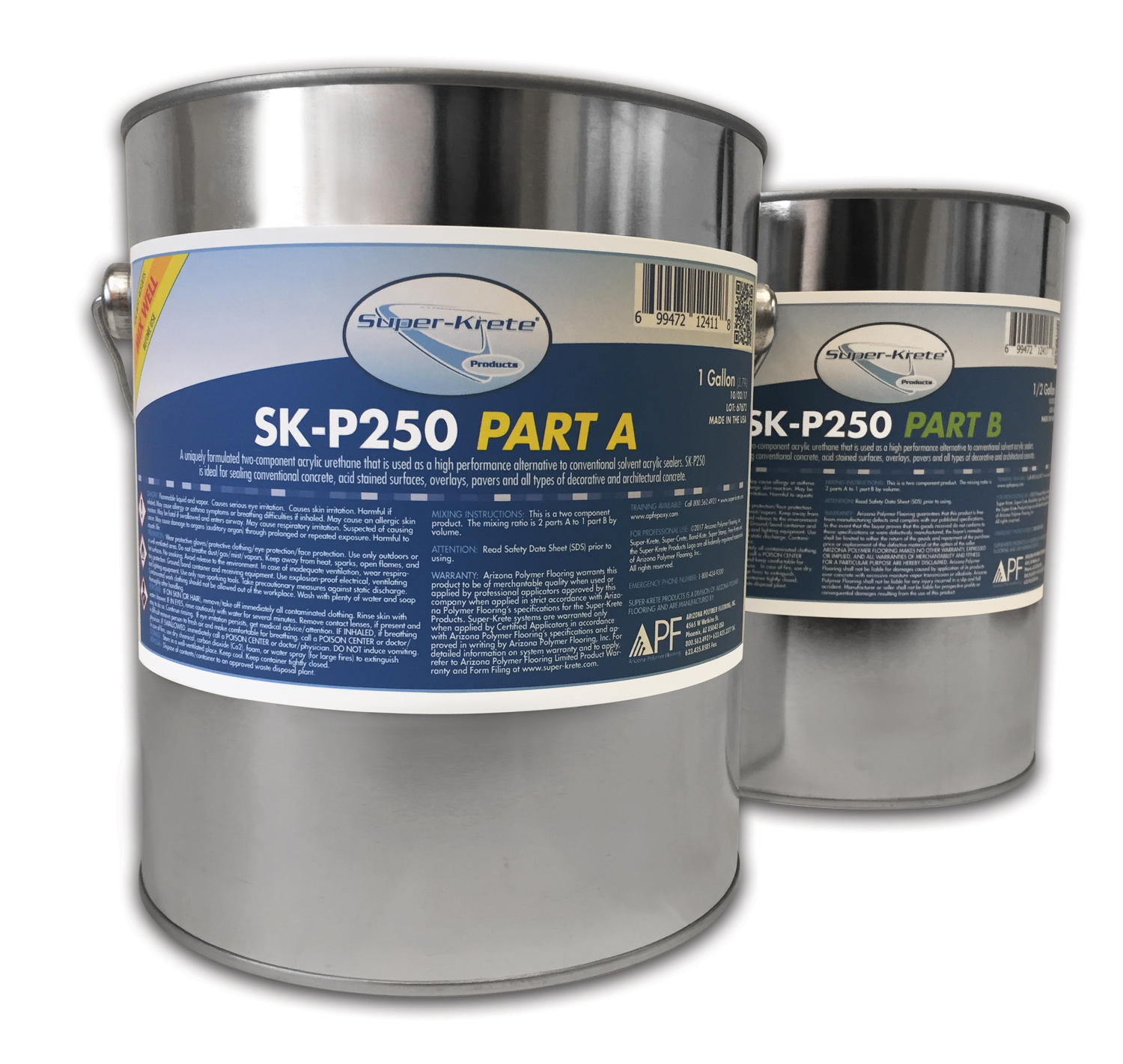 What’s more, SK-P250 can bond chemically to itself, even weeks or years after it was placed. You only need to clean the surfaces, while all other polyurethanes you must scrape after cure to provide a mechanical bond.
What’s more, SK-P250 can bond chemically to itself, even weeks or years after it was placed. You only need to clean the surfaces, while all other polyurethanes you must scrape after cure to provide a mechanical bond.
For areas requiring even more durability and chemical resistance – such as clean rooms, automotive repair facilities and air hangars – SK-P100 or SK-P501 can provide the right performance properties.
SK-P100
A two-component, high-solids aliphatic polyurethane that produces protective films that are hard, flexible and very impact resistant. It offers high abrasion and scratch resistance and exterior durability. It also offers easy soil release and excellent resistance to a broad range of chemicals.
SK-P501
A high-solids, two-component, water-based aliphatic polyurethane with performance properties equal to conventional solvent-based catalyzed urethanes. All of this is achievable without the associated health and environmental problems. The low-VOC formula offers substantial performance improvements over first generation catalyzed water-based polyurethanes, including higher film-build capabilities, improved chemical resistance and resistance to hot tire staining.
Selecting a sealer that meets diverse criteria will help you avoid premature flooring failures and ensure that you provide a long-lasting, high quality flooring system for your clients. It’s recommended that you consult the manufacturer to determine whether you are using the best materials for each situation.
Questions from Readers
Question
I have discolored red brick that has been treated with a gloss product and is now showing some white. How can I prepare the bricks so I can put a gloss back on?
Answer from Concrete Decor
Are you referring to masonry bricks that have been sealed or is the surface you’re referring to a stamped concrete surface with a brick pattern?
Often a whitish haze in the sealer results from moisture in your substrate. In such cases, it’s best to remove the old sealer and replace it with a breathable type concrete sealer. Many people often overapply concrete sealers. This can lead to the type of problem you’re seeing. The better alternative is several light coats.

